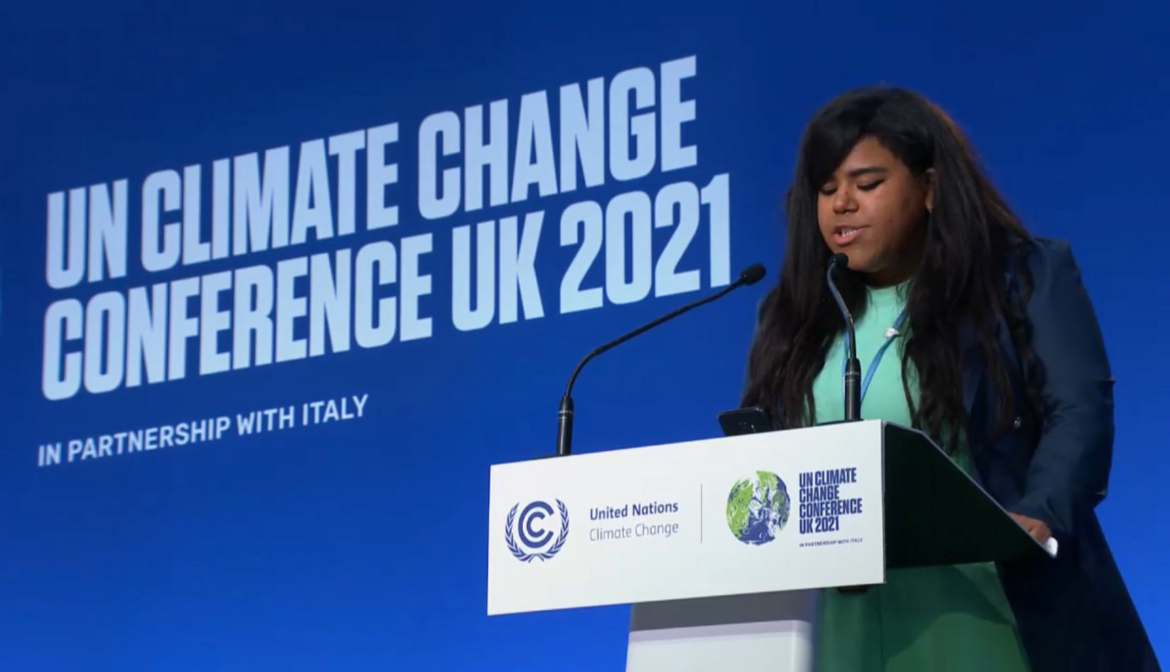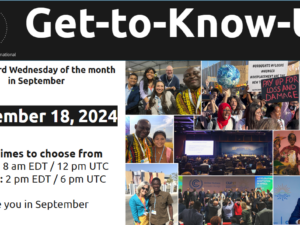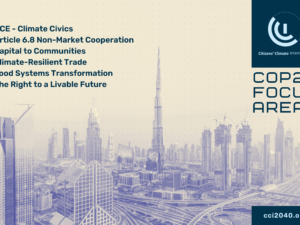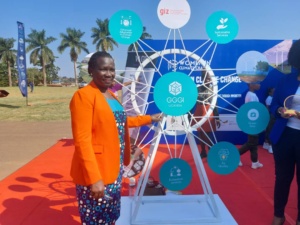
The “Participation Blueprint for the Loss and Damage Fund” is a comprehensive advocacy brief that underscores the necessity for robust, inclusive mechanisms to ensure meaningful participation of all rightsholders, particularly those in the most vulnerable situations.
The Loss and Damage Collaboration publication authored by Dr. Isatis M. Cintron-Rodriguez from the ACE Observatory and Columbia Climate School, Liane Schalatek from Heinrich Böll Stiftung, Lien Vandamme from the Center for International Environmental Law, this document aims to guide the operational policies and guidelines for the Loss and Damage Fund (LDF) operationalized at COP28 in Dubai. Dr. Cintrón is also a founding member of CCI’s Governing Board, and a long-time coordinator of Citizens’ Climate volunteer civic engagement across Latin America.
The Blueprint highlights key principles, modes of engagement, and practical governance and operational modalities, that can allow for robust, ongoing participation by vulnerable and affected communities. Here, we share a condensed overview of these principles and modalities:
Participation Principles
- Inclusivity and non-discrimination: Participation should be open to and made possible for all segments of society, particularly groups and communities most affected by loss and damage, including marginalized groups that often face intersecting forms of discrimination, ensuring their voices and concerns are equally considered.
- Access to information and transparency: Detailed and clear information about operations, decision-making processes, and the impact of its efforts must not be merely available, but must be fully accessible (i.e. in a manner and form that makes sense for those who need to be able to access it to effectively participate) to all rightsholders.
- Responsiveness: Efforts should be dynamic and adaptable, responding to community needs, evaluations, and the changing landscape of the challenges it aims to address.
- Equity and equality: Recognizing the disproportionate impact of climate change on certain regions, communities, and groups, participation should prioritize equity, ensuring that support is directed where it is most needed and that it advances substantive equality.
- Empowerment: Efforts should be made to empower participants through capacity-building initiatives, proactive outreach, and opportunities to submit their views, enabling them to effectively engage in processes that impact them.
- Collaboration: Fostering a spirit of cooperation between affected communities, other rightsholders such as Indigenous Peoples, women and diverse gender groups, and children and youth, and governments, civil society, and the private sector, to leverage diverse perspective and expertise.
Governance and Operational Modalities
- Recommends governance structures and operational modalities that ensure transparency, accountability, and equity.
- Suggests a governance and enabling environment that upholds human rights with equitable representation in decision-making, prioritizing frontline communities and marginalized groups.
- Calls for capacity-building initiatives to empower rightsholders with knowledge, skills, and resources for effective participation.
- Outlines strategies for enhancing understanding and access through workshops, training programs, and partnerships.
- Stresses the importance of leveraging traditional and Indigenous knowledge in climate resilience efforts.
- Proposes the implementation participatory monitoring, evaluation, and learning mechanisms to ensure continuous improvement and adaptation.
Summary
The brief emphasizes the need for transparency, accountability, and the development of a grievance redress mechanism. It provides examples of best practices in stakeholder participation from various global funding entities, highlighting areas for improvement and innovation. Additionally, it provided recommendations for the LDF Board including the establishment of a participatory process to develop an active observer modalities and guidelines to ensure the representation of frontline community voices in decision-making.
Download PDFFor queries, contact Isatis M. Cintron-Rodriguez at isatis@aceobservatory.org








